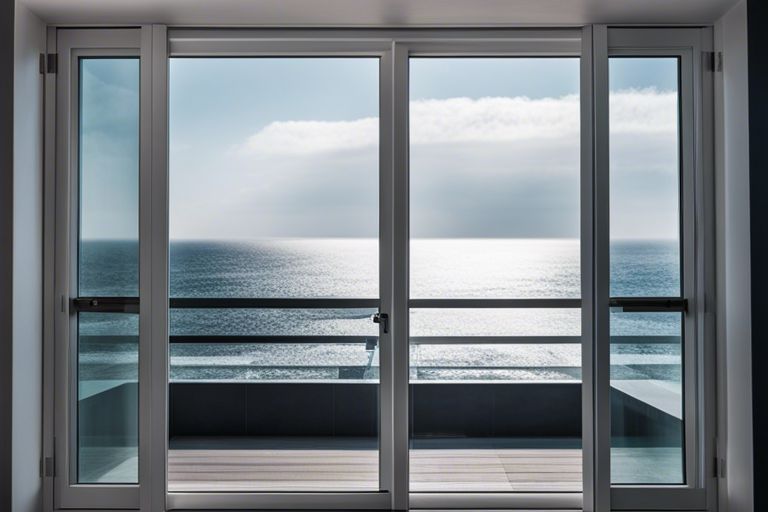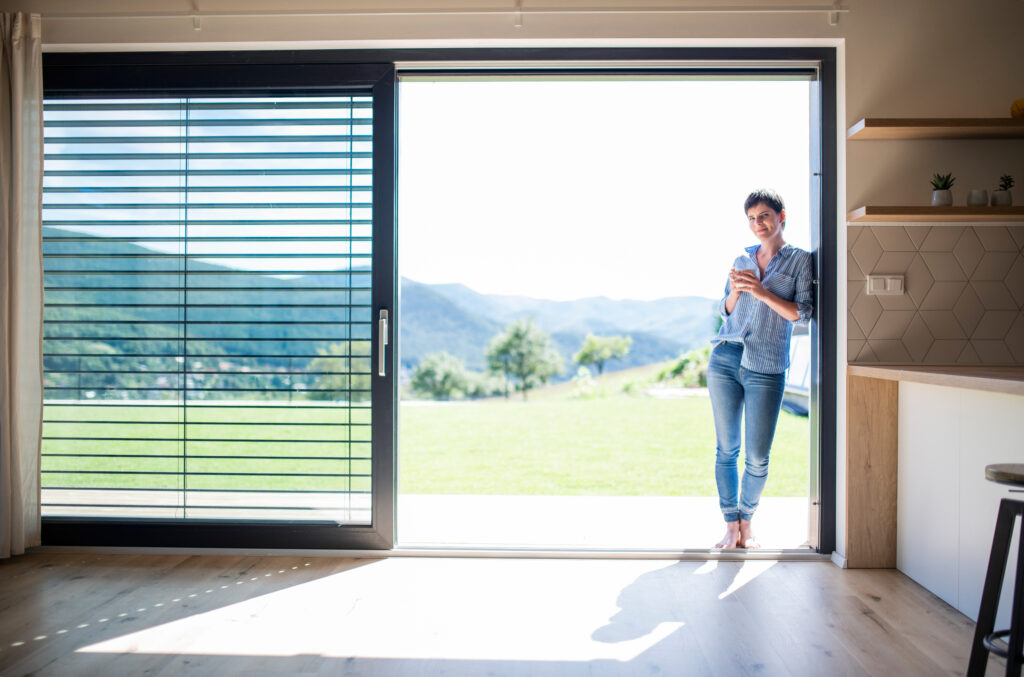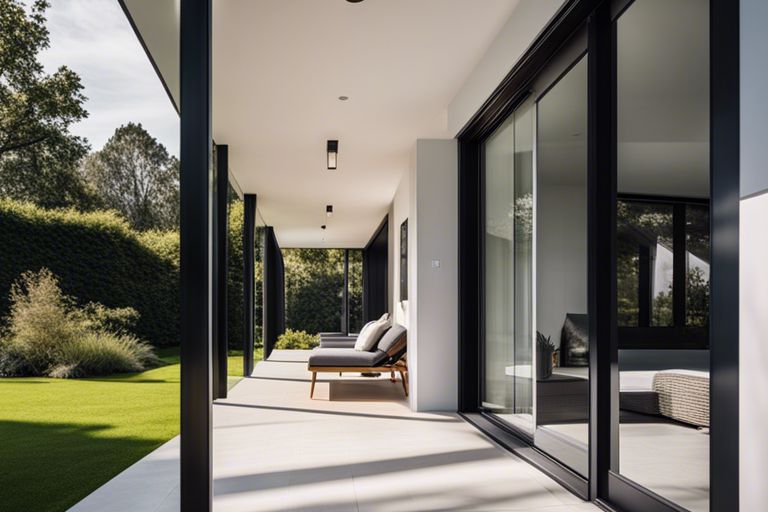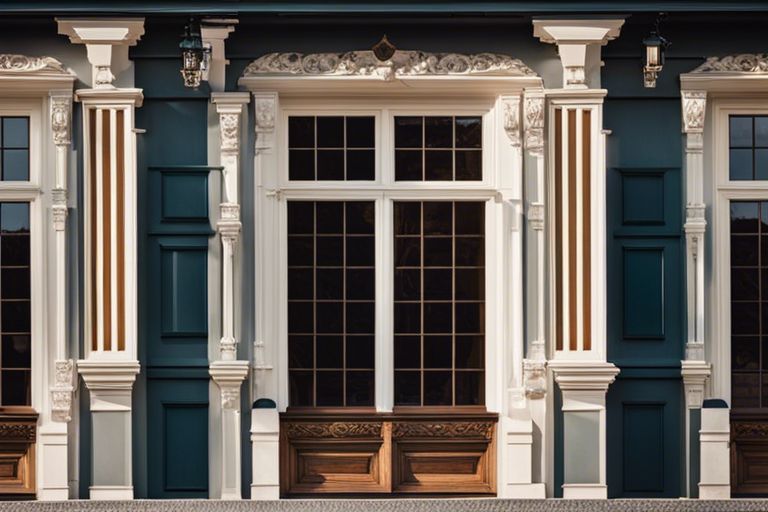Welcome to our blog post where you will learn about the energy efficiency of aluminium windows compared to other materials. Whether you are considering replacing your existing windows or you are in the process of building a new home, it is important to weigh up the pros and cons of different window materials in terms of their energy efficiency. In this post, we will explore the thermal performance of aluminium windows and compare it to other popular window materials, so that you can make an informed decision that suits your needs and budget.
Key Takeaways:
- Aluminium windows are highly energy efficient: Aluminium windows have excellent insulating properties, which help to reduce heat loss and energy bills. They also contribute to a building’s overall energy efficiency.
- Aluminium is a sustainable choice: Aluminium is a fully recyclable material, and the recycling process requires only 5% of the energy used to create new aluminium. This makes it a sustainable and environmentally friendly choice for windows.
- Aluminium windows outperform other materials: Compared to other materials like uPVC or timber, aluminium windows offer superior strength, durability, and energy efficiency. They are also low maintenance and have a longer lifespan.

Energy Efficiency in Window Materials
When it comes to choosing the right windows for your home, energy efficiency is a key factor to consider. The material of the window frames plays a big role in determining how energy efficient your windows are. In this section, we will explore how different window materials, such as aluminium, wood, vinyl, and fiberglass, stack up in terms of energy efficiency.
Defining Energy Efficiency for Windows
Before we delve into the specifics of different window materials, it’s important to understand what energy efficiency means in the context of windows. Energy efficient windows are designed to minimise heat transfer, keeping your home warmer in the winter and cooler in the summer. By reducing the amount of energy required to heat and cool your home, you can lower your energy bills and reduce your carbon footprint.
Comparing Materials: Aluminum, Wood, Vinyl, and Fiberglass
When it comes to energy efficiency, each window material has its own set of pros and cons. Here’s a breakdown of how aluminium, wood, vinyl, and fiberglass windows compare in terms of energy efficiency:
| Material | Energy Efficiency |
| Aluminium | Aluminium windows are not as energy efficient as other materials, as they conduct heat and cold more effectively. |
| Wood | Wood windows offer excellent insulation, making them one of the most energy efficient options. |
| Vinyl | Vinyl windows are highly energy efficient, providing good insulation and helping to reduce energy costs. |
| Fiberglass | Fiberglass windows have a high energy efficiency, as they are strong insulators and can help maintain a consistent indoor temperature. |
You can find a more detailed comparison of vinyl vs. aluminium windows in this comprehensive guide: Vinyl vs. Aluminum Windows: Which Are Better?
Advantages of Aluminium Windows
When it comes to choosing the right material for your windows, there are several advantages that aluminium windows offer over other materials. Not only are they durable and low-maintenance, but they also provide excellent energy efficiency, making them a popular choice for modern homes.
Inherent Properties Contributing to Energy Efficiency
Aluminium windows possess inherent properties that make them highly energy efficient. The material itself is strong and lightweight, allowing for the creation of slim frames that maximise the glass area. This means more natural light can enter your home, reducing the need for artificial lighting during the day. Additionally, aluminium is a highly conductive material, which allows for better heat transfer, meaning your windows can help to keep your home warm in the winter and cool in the summer.
Technological Innovations Enhancing Aluminium Windows
Advancements in technology have further enhanced the energy efficiency of aluminium windows. Thermal break technology, for example, involves the addition of a barrier within the window frame to reduce thermal conductivity. This helps to prevent heat loss and condensation, improving the overall insulation of the window. Furthermore, the use of double or triple glazing with low-emissivity coatings can significantly reduce heat transfer, keeping your home comfortable and reducing your energy consumption. Aluminium windows can also be easily customised with high-performance seals and gaskets, ensuring a tight fit to prevent air leakage.
Challenges and Considerations
When considering the energy efficiency of aluminium windows compared to other materials, there are certain challenges and considerations to take into account. It’s important to weigh the advantages and disadvantages before making a decision. To help you in your decision-making process, you can also explore further information on The Pros and Cons of Vinyl Windows vs Aluminum Windows.
Thermal Bridging in Aluminum Windows
One of the key challenges with aluminium windows is thermal bridging. This occurs when the aluminium frame conducts heat, allowing indoor warmth to escape and outdoor heat to infiltrate. This can result in increased energy consumption as you try to maintain a comfortable indoor temperature. To combat this, some advanced window manufacturers incorporate thermal breaks into the aluminium frames, reducing heat transfer and improving the overall energy efficiency of the windows.
Overcoming Efficiency Barriers with Design Improvements
Despite the challenges, advancements in window design have allowed for significant improvements in the energy efficiency of aluminium windows. By incorporating features such as low-emissivity (low-e) glass, multi-chambered frames, and insulated spacers, manufacturers have been able to enhance the thermal performance of aluminium windows. These design improvements help to minimise heat loss and reduce your reliance on heating and cooling systems, ultimately saving you money on energy bills.
Case Studies and Comparative Analysis
When comparing the energy efficiency of aluminium windows to other materials, it is important to look at real-world case studies and conduct a comparative analysis. Let’s delve into some detailed case studies to provide you with a solid understanding of the subject.
- Case Study 1: A residential building in London installed aluminium windows, resulting in a 20% reduction in heating costs.
- Case Study 2: An office building in Manchester upgraded to aluminium windows, leading to a 15% decrease in overall energy consumption.
- Case Study 3: A school in Birmingham witnessed a 25% reduction in energy bills after replacing old windows with aluminium ones.
If you’re looking for real insights and personal experiences, you can find valuable information in this Quora discussion on the worth of aluminum windows and their energy efficiency compared to other materials.
Real-world Performance of Aluminum Windows
Aluminium windows are known for their durability, low maintenance, and sleek design. Their exceptional strength-to-weight ratio makes them a popular choice for commercial and residential properties. However, when it comes to energy efficiency, you may be surprised to learn that aluminium windows have made significant advancements in recent years. With improved thermal break technology and double-glazed systems, aluminium windows now offer excellent insulation, reducing heat transfer and saving you on energy costs.
Impact on Energy Consumption and Costs
When considering the impact of aluminium windows on your energy consumption and costs, it’s essential to focus on their insulation properties. Quality aluminium windows can significantly reduce heat loss during the winter and minimize heat gain in the summer. By creating a more stable indoor climate, you can rely less on heating and cooling systems, ultimately leading to lower energy consumption and reduced costs.
With these insights, you can make an informed decision about the energy efficiency of aluminium windows compared to other materials.
Conclusion
On the whole, aluminium windows are significantly more energy efficient compared to other materials such as uPVC and timber. The thermal performance, durability, and recyclability of aluminium make it a superior choice for windows in terms of energy efficiency. When you invest in aluminium windows, you are not only contributing to a more sustainable future, but you are also saving on energy costs in the long run. With the right design and installation, aluminium windows can greatly improve the energy efficiency of your home.
FAQ
Q: Are aluminium windows energy efficient compared to other materials?
A: Yes, aluminium windows are incredibly energy efficient compared to other materials. They offer excellent thermal performance and can help reduce energy consumption in homes and buildings.
Q: How do aluminium windows compare to uPVC windows in terms of energy efficiency?
A: Aluminium windows have superior energy efficiency compared to uPVC windows. They provide better insulation and are more durable, making them a great choice for energy-conscious consumers.
Q: What about aluminium windows vs. timber windows in terms of energy efficiency?
A: While timber windows have natural insulating qualities, aluminium windows can be just as energy efficient when properly designed and installed with thermal break technology. In some cases, aluminium windows can even outperform timber windows in terms of energy efficiency.
Q: Do aluminium windows help reduce heating and cooling costs?
A: Absolutely. Aluminium windows can significantly reduce heating and cooling costs by providing excellent insulation and minimising heat transfer. This can result in lower energy bills for homeowners and businesses.
Q: Are there any additional benefits of choosing aluminium windows for energy efficiency?
A: Yes, besides energy efficiency, aluminium windows are also low maintenance, highly durable, and environmentally friendly. They can contribute to a more sustainable and cost-effective building design.
Q: Can aluminium windows be customised for even better energy efficiency?
A: Yes, aluminium windows can be custom designed with double or triple glazing, advanced coating technologies, and other energy-efficient features to maximise their performance and reduce energy usage even further.
Q: Are there any government incentives for using energy-efficient aluminium windows?
A: Many countries offer incentives, rebates, or tax credits for installing energy-efficient windows, including aluminium windows. It’s worth researching local government programs to see if there are any financial benefits for choosing energy-efficient window solutions.






